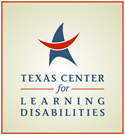Description
Difficulties suppressing previously encountered, but currently irrelevant information from working memory characterize less skilled comprehenders in studies in which they are matched to skilled comprehenders on word decoding and nonverbal IQ. These “extreme” group designs are associated with several methodological issues. When sample size permits, regression approaches permit a more accurate estimation of effects. Using data for students in grades 6 to 12 (n = 766), regression techniques assessed the significance and size of the relation of suppression to reading comprehension across the distribution of comprehension skill. After accounting for decoding efficiency and nonverbal IQ, suppression, measured by performance on a verbal proactive interference task, accounted for a small amount of significant unique variance in comprehension (less than 1%). A comparison of suppression in less skilled comprehenders matched to more skilled comprehenders (48 per group) on age, word reading efficiency and nonverbal IQ did not show significant group differences in suppression. The implications of the findings for theories of reading comprehension and for informing comprehension assessment and intervention are discussed.
Citation
Barnes, M. A., Stuebing, K. K., Fletcher, J. M., Barth, A. E., & Francis, D. J. (2016). Cognitive difficulties in struggling comprehenders and their relation to reading comprehension: A comparison of group selection and regression-based models. Journal of Research on Educational Effectiveness, 9(2), 153-172.
